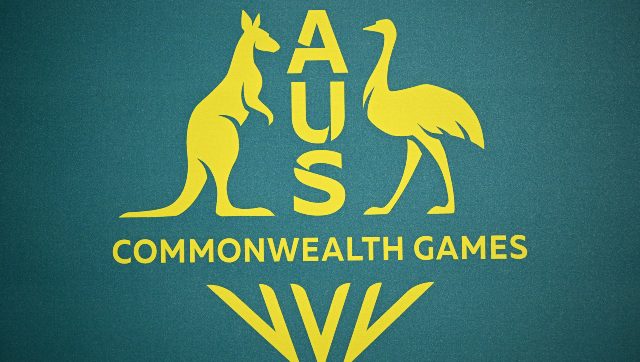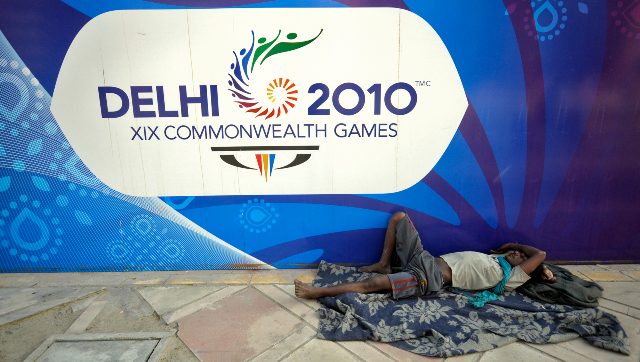Commonwealth Games’ future in doubt after Australia pull out as hosts of 2026 edition
The 2026 Commonwealth Games (CWG) will not be hosted in Victoria, Australia. With less than three years to go for the 2026 edition, the Australian state on Tuesday pulled out of hosting the multilateral event due to rising costs.
The cost of the Games, which was initially estimated to be Aus$2 billion (US$1.36 billion), had reached a whopping Aus$7 billion (US$4.76 billion).
“I’ve made a lot of difficult calls, a lot of very difficult decisions in this job. This is not one of them. Frankly, $7 billion for a sporting event, we are not doing that,” Victoria Premier Daniel Andrews at a press conference in Melbourne. “I will not take money out of hospitals and schools to host an event that is three times the cost estimated and budgeted for last year.
Related Articles

Commonwealth Games in limbo as Australia pulls out as 2026 host

No Commonwealth Games in 2026? What happens as Victoria pulls out as host
“The Games will not proceed in Victoria in 2026. We have informed Commonwealth Games authorities of our decision to seek to terminate the contract,” he added.
Commonwealth Games in 2026 was expected to feature 20 sports and 26 disciplines. The events were to be held across Geelong, Ballarat, Bendigo, Gippsland and Shepparton. Each regional hub was to have its own athletes’ village.
Naturally, the cost of hosting the tournament shot up beyond control and affordability, leading to Victoria deciding to pull out from hosting.
Commonwealth Games Federation (CGF), the organisation responsible for the event, expressed disappointment and said that they are looking to find a solution for the 2026 Games.
“We were informed today that the Victorian Government has walked away from their agreement to host the 2026 Commonwealth Games. This is hugely disappointing for the Commonwealth Sport Movement, for athletes around the Commonwealth and the Organising Committee who are well advanced in their planning and preparation,” CGF said in a statement.
“We are taking advice on the options available to us and remain committed to finding a solution for the Games in 2026 that is in the best interest of our athletes and the wider Commonwealth Sport Movement,” it added.

Here in lies the big question — will they find a replacement?
If they don’t find it, it could be the beginning of the end of the Commonwealth Games. Even if they do, the future of CWG looks bleak.
This is not the first time a host has failed to keep its promise. In 2017, Durban – the original 2022 Games host – was stripped of the right after a string of missed deadlines and financial problems.
The CGF at that time were rescued by England’s Birmingham who took over the responsibility. This time less than three years are left.
Two successive hosts failing to keep their promise to CGF is nothing but signs of things to come. With the world economy facing a downturn in the face of rising inflation, contracting demand, the Russia-Ukraine war and climate change, hosting loss-making multilateral events which involve spending billions is not going to be a priority for governments.
It’s a problem that nations hosting the grand Olympics have also faced. Olympic history is littered with examples of the Games ravaging the economy of a nation.
For example, it took Montreal (Canada) 30 years to pay off the debt from hosting the 1976 Olympics. 2004 Athens Olympics are often quoted as the reason for the Greece’s economic downfall and the 2016 Olympics in Rio (Brazil) left an ugly legacy of empty and unused arenas, corruption and financial calamity as $14 billion was spent to host the event with a 352% cost overrun.
Read: The loss-making task that is hosting Olympics
Despite hosting the Olympics turning out to be a horror for local organisers, the magnitude of the event would help it keep running for a long. The next two events are to be held in Paris (2024) and Los Angeles (2028), both sporting cities which can keep the cost down and attract tourists.
But the same can’t be said for the Commonwealth sport movement. CWG, which takes place every four years, includes athletes from 52 members of the Commonwealth, most of which were British colonies in the past.
Out of the 22 editions, only three have taken place outside of Britain, Australia, New Zealand and Canada.

The only time India hosted it was in 2010 when they ended up spending $4.1 billion as against an estimated cost of US$270 million. Similar to Rio, its legacy also is the infrastructure that is still to see the same level of tournament and corruption.
The ridiculous expenditure has also discouraged India from bidding for another such event. Also, the enormous costs involved throws up a prominent trend, only developed economies can afford to host such Games.
But Victoria now pulling out has put an end to this theory and puts a serious question mark over the future of the Commonwealth Games which is far behind in level of competition to Asian Games or Olympics.
The only way Birmingham was able to save CGF’s blushes was because they had little investment to do. While making the bid, the organisers said that the city already had 95 percent of the competition venues in place with the Alexander Stadium.
Only the Sandwell Aquatics Centre was newly proposed, bringing down the budget to US$989 million, which was even less than what Australia spent for the 2018 Commonwealth Games in Gold Coast.
This is probably the future of CWG and the Olympics. To host it in cities that have existing infrastructure, both for sporting events and lodging and maybe have the Games with lesser events. Even then, with the growing costs, poor economic trends and reduced number of bidders, CWG faces its biggest challenge.
For all the latest Sports News Click Here

